Why am I Gaining Weight Despite Diet and Exercise? │ QA
If you’re careful with your nutrition, working out weekly, and still experiencing problems with your weight, take a moment to read this QA.


What are mucins? I just heard the term recently and it sounded like they are good for you, but I’d like more info. What do they do for you? And what are good sources of them?
– Kathryn J.

Mucins are glycoproteins that are an integral part of your immune system, acting as a physical barrier for epithelial cells against pathogens and foreign invaders and helping prevent inflammatory responses. They also act as lubrication in gel-like secretions such as saliva, mucus and tear film over the eyes. The mucins you produce are generally good for you, except the ones that are over-expressed and linked to cancer or respiratory ailments.
Other animals that produce notable mucins are snails, octopus, and giant jellyfish. Does that mean that eating them or their mucin will result in your gaining more human mucin? I could not determine that, although I did find out that apparently snail slime face masks are quite popular. Scientifically, it follows that if your mucins are lining your gut then they aren’t digested and absorbed, and therefore animal mucin consumed orally wouldn’t be either. But that is just my hypothesis.
From all the available literature it seems there are a few things you can eat to optimize your natural mucin:
In animal studies, it’s been shown that vitamin A and the amino acid threonine is needed for mucin synthesis. Vitamin A is found in eggs, dairy fat, dark green leafy and orange vegetables and fruit. Threonine — essential in the human diet since we can’t produce it — is found in protein (predominantly from meat, dairy foods and eggs). Eating adequate fiber which colonic bacteria feed on will prevent them from turning to gobbling up your mucin. Evidence is limited whether licorice root may help increase the natural production of mucins, but it has been used as a natural gut remedy for centuries.
– Debbie J., MS, RD
This article should not replace any exercise program or restrictions, any dietary supplements or restrictions, or any other medical recommendations from your primary care physician. Before starting any exercise program or diet, make sure it is approved by your doctor.
Some questions have been edited for length and/or clarity.
 Have a nutrition question? Our registered dietitian is ready to help!
Have a nutrition question? Our registered dietitian is ready to help!
Email nutrition@lafitness.com or submit your question below and it may be featured in an upcoming article!
If you’re careful with your nutrition, working out weekly, and still experiencing problems with your weight, take a moment to read this QA.
Blood sugar control isn’t easy. These are Debbie’s top recommendations for how to address weight control with Type II Diabetes.
Does Intermittent Fasting give you enough time to pack the day's protein? Our registered dietitian helps clear up the confusion!
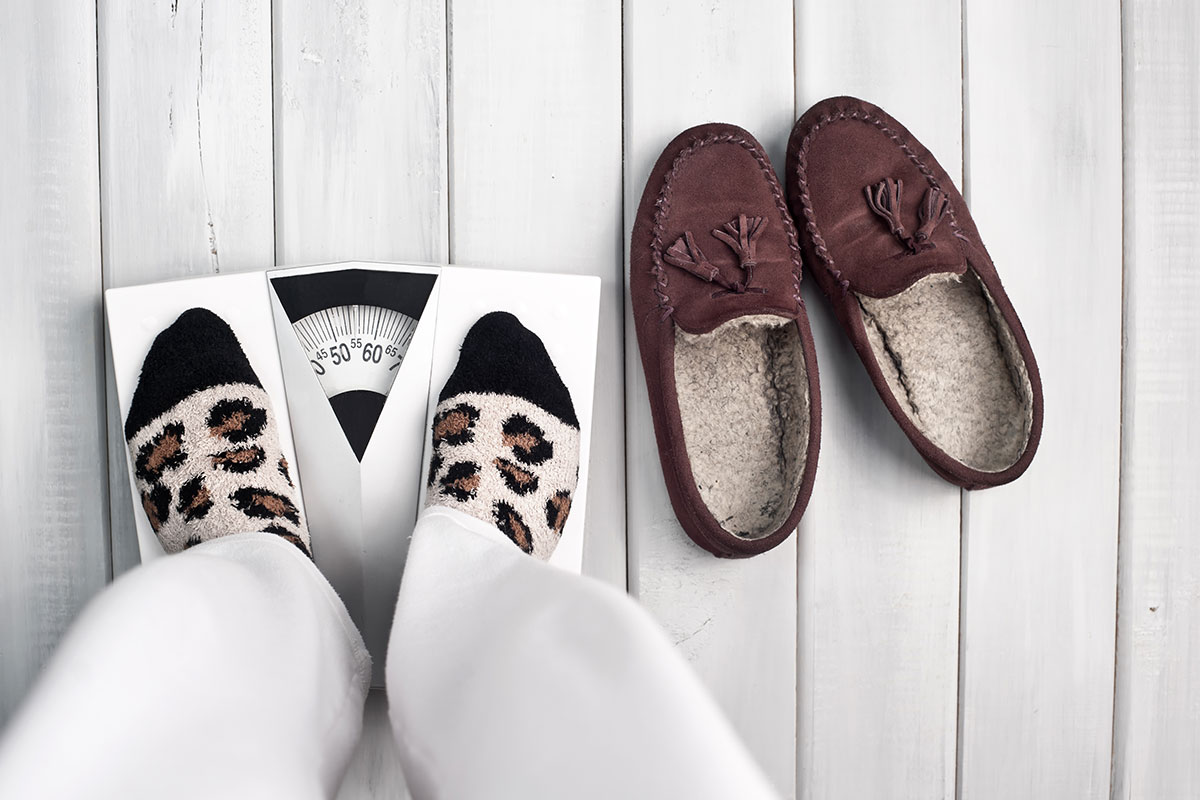

I have been working out for two weeks now. I have not been eating a lot. I have gained a pound, and I don’t understand why. I started out at 216 lbs. and when I got on the scale last night I was actually 217.8 lbs. I am trying really hard and need some advice.
– Monica R.

Bravo at how much effort you are putting in! The scale is a guide but the true marker of how your body’s responding to curbing calories while increasing exercise is how your clothes are fitting. Scale weight can fluctuate with hydration status, time of day and changes in clothing. For the most accurate and consistent result when weighing yourself use the same scale dressed in lightest clothing possible at the same time of day each time, and never post-exercise. A digital scale is more accurate than a dial-type scale. A manual balance (physician’s beam) scale is the kind most often found in our sports clubs’ locker rooms as it stands up to heavy use – this type is very precise if it’s calibrated regularly.
Reference:
Accuracy and consistency of weights provided by home bathroom scales. M. Yorkin, et al. BMC Public Health 2013, vol. 13, article 1194.
– Debbie J., MS, RD
This article should not replace any exercise program or restrictions, any dietary supplements or restrictions, or any other medical recommendations from your primary care physician. Before starting any exercise program or diet, make sure it is approved by your doctor.
Some questions have been edited for length and/or clarity.
 Have a nutrition question? Our registered dietitian is ready to help!
Have a nutrition question? Our registered dietitian is ready to help!
Email nutrition@lafitness.com or submit your question below and it may be featured in an upcoming article!
If you’re careful with your nutrition, working out weekly, and still experiencing problems with your weight, take a moment to read this QA.
Blood sugar control isn’t easy. These are Debbie’s top recommendations for how to address weight control with Type II Diabetes.
Does Intermittent Fasting give you enough time to pack the day's protein? Our registered dietitian helps clear up the confusion!
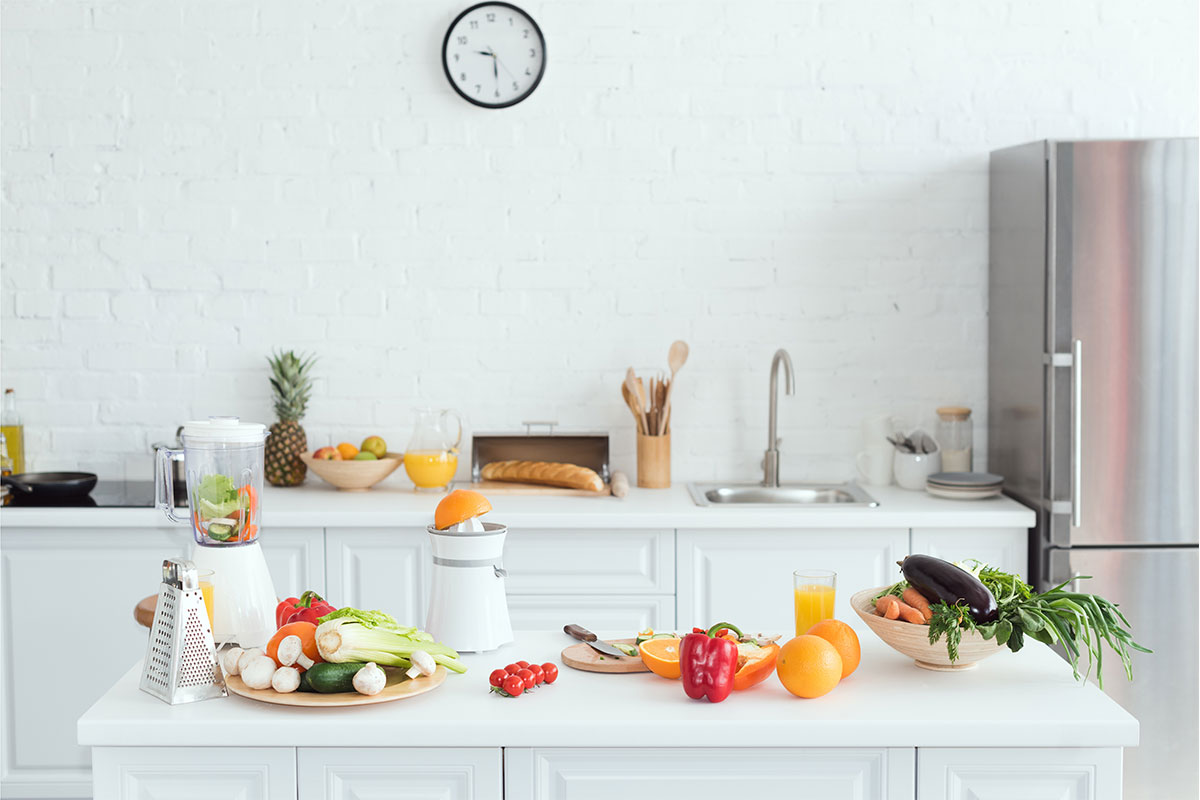

I wake up at 4 am to be at the gym by 5am, work out until 7am, and then I work 10 hours. My job is stressful so I forget to eat, and I want to eat healthy. Which foods are best and at what times throughout the day should I eat? My goal is to lose abdominal fat.
– Mike

Hello Mike. It seems to me that if you’re forgetful, stressed out or not hungry which results in not eating during your work day, I’m not sure that making precise recommendations will make a difference. Start with a regular eating routine by setting reminders at set times or regular intervals. Employ sticky notes or smartphone alarms if you have to! Having ready-to-eat food on hand may make the difference between grabbing a bite and not eating altogether.
You only need a microwave or refrigerator for temperature acceptance (rather than food safety) for the following: pop-top cans of chili and tuna, aseptic packaged chocolate milk, and shelf-stable ravioli. Dried fruit, nuts/seeds, protein bars, turkey jerky and veggie chips make for easy dry snack options to have on hand. Don’t forget a convenient refillable water bottle!
Of course, eating in the morning surrounding your workout is crucial to your performance in the gym and success losing abdominal fat. Are you drinking a protein shake as soon as you rise or before you leave the door? At 7:00 after your exercise you should be fueling up on a major breakfast given the 2-hour workout and long duration before your next meal.
– Debbie J., MS, RD
This article should not replace any exercise program or restrictions, any dietary supplements or restrictions, or any other medical recommendations from your primary care physician. Before starting any exercise program or diet, make sure it is approved by your doctor.
Some questions have been edited for length and/or clarity.
 Have a nutrition question? Our registered dietitian is ready to help!
Have a nutrition question? Our registered dietitian is ready to help!
Email nutrition@lafitness.com or submit your question below and it may be featured in an upcoming article!
If you’re careful with your nutrition, working out weekly, and still experiencing problems with your weight, take a moment to read this QA.
Blood sugar control isn’t easy. These are Debbie’s top recommendations for how to address weight control with Type II Diabetes.
Does Intermittent Fasting give you enough time to pack the day's protein? Our registered dietitian helps clear up the confusion!


I heard over the radio at the gym today that we can ask for nutrition info through this email. I am trying to lose weight. I am 25, weigh 170.4 pounds (last time I checked), and the body fat scanner at the gym says 30.2% with a 25.9 BMI. Since January, I go to the gym an average of 5 days a week but I haven’t lost any weight. My eating habits are the same. Right now, I am trying to keep to about 1,600 calories per day with a low carb, moderate fat, and high protein diet.
I am not perfect with my food (never have been) but I am always making conscious health choices and it seems like what I am doing isn’t working. I can tell I am getting stronger and my endurance is getting better, but I am not seeing fat loss results. I feel like I am just building muscle under the fat. I drink a lot of water, drink almond milk, and keep my dinners at home simple with just a meat and veggie. I only eat boiled eggs for breakfast and usually have a 310-calorie nutrition shake and a tuna packet for my lunches.
I was wondering if you had any suggestions on the cals/macros I need to do. The trainers at the gym say what I am doing at the gym sounds good, but they aren’t sure why I am not seeing results. I was hoping to lose weight for my wedding on June 2 and I am getting depressed that it seems I am putting in all this time and effort and not going to hit my goal!
– Jessica M.

Congrats on your upcoming nuptials! From everything that you’ve described, it sounds like your current intake is lower in energy than what’s predicted for quick weight loss (your estimated resting metabolic rate is ~1890 calories). It’s great that since you’ve increased calories and activity, you have not gained weight and are getting healthier. However, your diet is low in fiber – a diet high in fiber can help you feel full longer and clear your bowels to reduce abdominal bloat. Getting rid of any excess water weight will bring out more definition and reduce your waistline.
Since your wedding is just around the corner, at this point you might want to focus on combatting bloating for a slimmer look while incorporating unsaturated plant fats to nourish your skin for that bridal glow. Keep sodium low (goal under 2,400 mg) while boosting potassium (goal 4,700 mg) by eating more bananas, beet greens, juices (carrot, orange, pomegranate, and prune), yogurt (non-fat and low-fat), potatoes, spinach, sweet potatoes, tomatoes and tomato products, and white beans.
Here’s what you might tweak for the next couple of weeks:
Breakfast
Lunch
Dinner
* Green Tea Smoothie: In a high-powered blender mix 1 cup vanilla almond milk, 1 teaspoon powdered green tea, ½ avocado, ½ banana, 1 tablespoon ground flaxseed and ½ cup crushed ice. Blend until smooth. 310 calories, 5 gm protein, 39 gm carb [6 gm fiber], 755 mg potassium, 160 mg sodium.
– Debbie J., MS, RD
This article should not replace any exercise program or restrictions, any dietary supplements or restrictions, or any other medical recommendations from your primary care physician. Before starting any exercise program or diet, make sure it is approved by your doctor.
Some questions have been edited for length and/or clarity.
 Have a nutrition question? Our registered dietitian is ready to help!
Have a nutrition question? Our registered dietitian is ready to help!
Email nutrition@lafitness.com or submit your question below and it may be featured in an upcoming article!
If you’re careful with your nutrition, working out weekly, and still experiencing problems with your weight, take a moment to read this QA.
Blood sugar control isn’t easy. These are Debbie’s top recommendations for how to address weight control with Type II Diabetes.
Does Intermittent Fasting give you enough time to pack the day's protein? Our registered dietitian helps clear up the confusion!
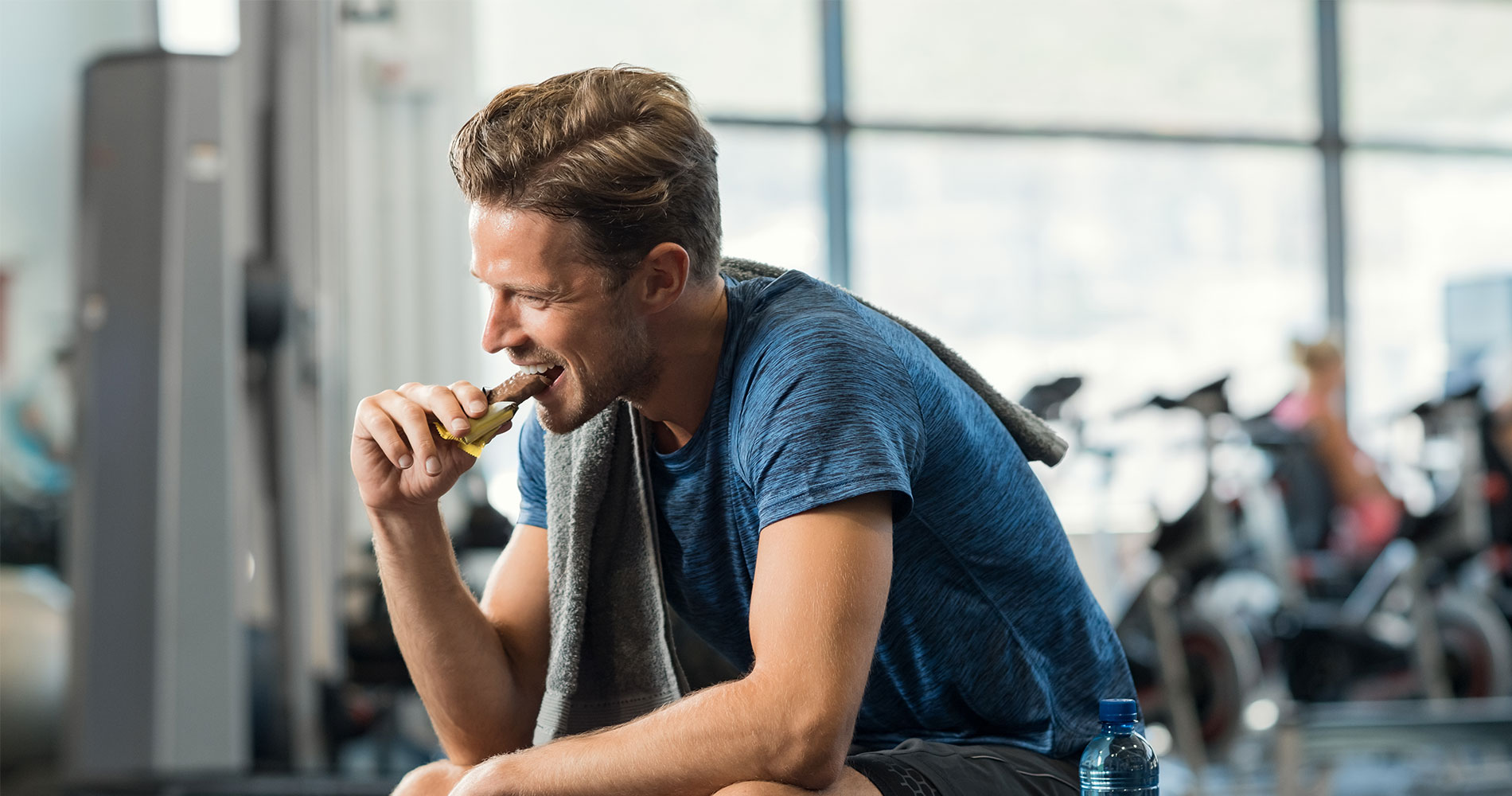

If I eat 1 package of sugar-free instant oatmeal with 16 blueberries for breakfast at 6 am, is it okay to eat 8 whole wheat crackers and 1 tablespoon of peanut butter an hour before I work out with my trainer at 10 am?
– Michelle

Yes! The early morning meal restores glycogen and primes blood sugar, while the pre-workout snack would help maintain a constant fuel supply. However, together they may provide less than 500 calories to sustain you for 5 hours (6 a.m. – 11 a.m.) which may not be enough to really push through a tough workout. I’d recommend a post-workout snack such as a yogurt cup, hard cooked egg with pretzels, or hummus with pita and carrots unless you’re going straight for an early lunch. Good options would be vegetarian chili, a turkey sandwich or salad niçoise (greens, tuna, potato and string beans).
– Debbie J., MS, RD
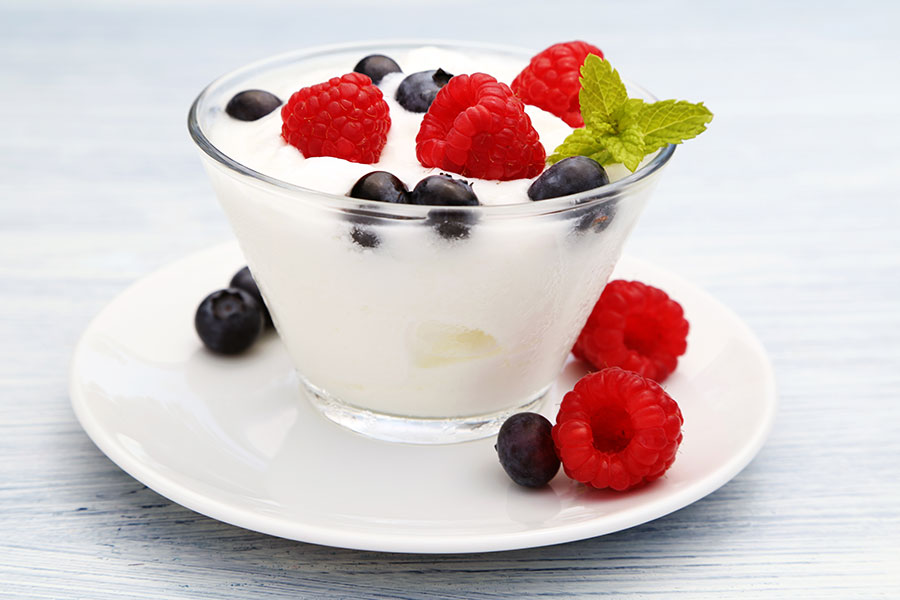


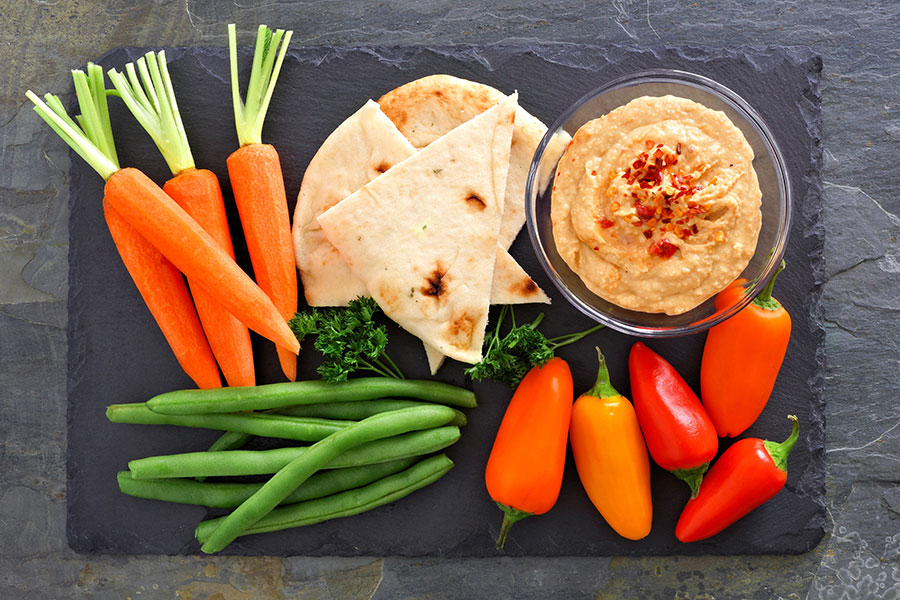
This article should not replace any exercise program or restrictions, any dietary supplements or restrictions, or any other medical recommendations from your primary care physician. Before starting any exercise program or diet, make sure it is approved by your doctor.
Some questions have been edited for length and/or clarity.
 Have a nutrition question? Our registered dietitian is ready to help!
Have a nutrition question? Our registered dietitian is ready to help!
Email nutrition@lafitness.com or submit your question below and it may be featured in an upcoming article!
If you’re careful with your nutrition, working out weekly, and still experiencing problems with your weight, take a moment to read this QA.
Blood sugar control isn’t easy. These are Debbie’s top recommendations for how to address weight control with Type II Diabetes.
Does Intermittent Fasting give you enough time to pack the day's protein? Our registered dietitian helps clear up the confusion!
Be the first to know about exclusive
content, deals and promotions